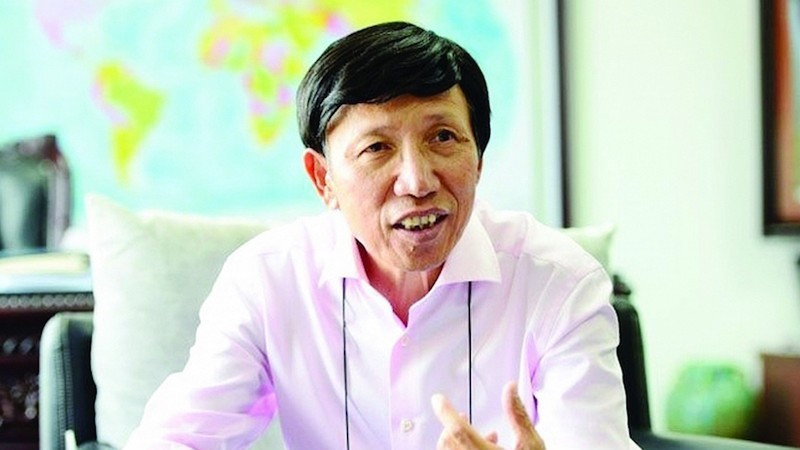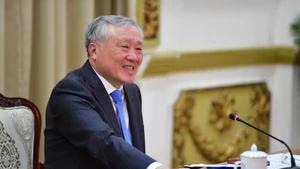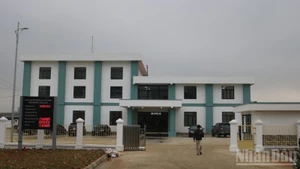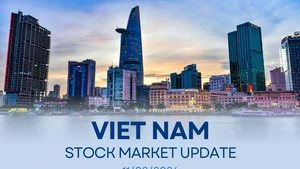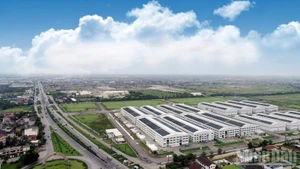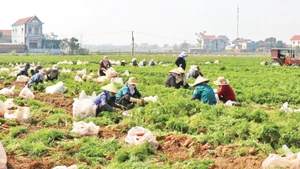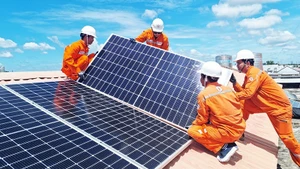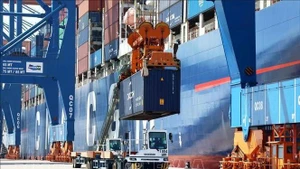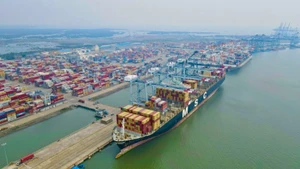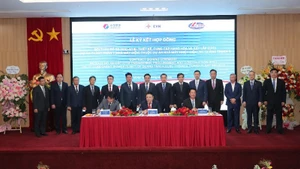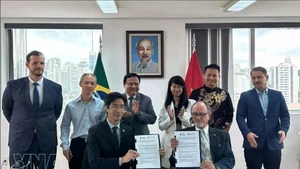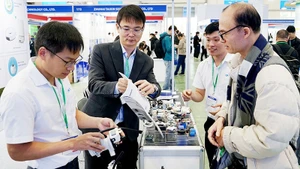Dr. Phan Huu Thang
Selective growth of investment capital
Q: From the perspective of a researcher in investment activities, how do you assess the trend of Vietnamese enterprises investing abroad in the context of implementing the Politburo’s Resolution 68-NQ/TW on the development of the private economy?
A: Until now, we often referred to FDI as foreign direct investment from one country (usually developed economies) into another (often developing economies such as Viet Nam).
Meanwhile, outward foreign direct investment (OFDI) is also a source of FDI, but the term is used to specify that this is direct investment capital from one’s own country into other nations and territories.
In essence, both are the same source of capital and primarily come from the private economy. In the current context of Viet Nam’s deepening integration into the global economy, private-sector OFDI, along with the overall dynamism of the economy, will help the private sector expand markets abroad.
If institutional obstacles as well as weaknesses of the economy are soon removed, this will be the time to create a breakthrough for Vietnamese OFDI. Viet Nam will then strongly promote both inward FDI and outward OFDI to become a developed economy.
By the end of 2024, the country had about 1,825 outward investment projects with total registered capital of nearly 23 billion USD. In 2024 alone, the total outward investment of Vietnamese enterprises (including new projects and capital adjustments) reached nearly 664.8 million USD, up 57.7% compared with the previous year, across 164 projects.
Q: As a capital recipient country, what advantages do Vietnamese enterprises now have when investing abroad?
A: By the end of 2024, Viet Nam had about 1,825 outward investment projects with total registered capital of nearly USD 23 billion. In 2024 alone, outward investment (including new and adjusted projects) reached nearly 664.8 million USD across 164 projects, up 57.7% over the previous year.
Outward investment in 2024 focused on 16 industries, including professional, scientific and technological activities; processing and manufacturing; and electricity production and distribution.
Overall, outward investment capital remains small compared with inward FDI, but it is increasing year by year. This shows Vietnamese enterprises are becoming more proactive in seeking opportunities abroad.
Enterprises have diversified destinations within ASEAN, with strong presence in Laos and Cambodia, helping Vietnamese businesses leverage geographical and logistics advantages at low costs.
Some projects are profitable, and initial mergers and acquisitions (M&A) and ICT (information and communications technology) investments have appeared, showing OFDI is beginning to move into higher-value activities.
However, project capital scale remains small compared with the size of the economy and inward FDI (with FDI disbursement in 2024 reaching a record 25.35 billion USD). In addition, OFDI lacks strategic, high-tech projects with spillover effects, mainly focusing on mining and agriculture, which are vulnerable to commodity price risks, environmental issues, and host-country policies.
The management, financial, and legal capacities of enterprises has remain limited. Many Vietnamese enterprises are still weak in cross-border finance and governance and lack understanding of host-country laws, leading to risks of failure, disputes, or low profits.
Building Vietnamese economic groups into global investors
Q: To seize development opportunities in international markets in the new era, what solutions do we need?
A: From the state’s side, we recommend identifying a long-term vision and implementing financial and human resource solutions. Focus should be on building several Vietnamese corporations into global investors in key sectors such as clean energy, telecommunications, information technology, manufacturing value chains, and logistics.
OFDI structure must be shifted from mining and agriculture to high technology, research and development (R&D), financial services, cross-border payments, renewable energy, and value-added production.
A comprehensive support ecosystem needs to be built — including laws, investment funds, embassy and trade networks, human resources, and a cooperative start-up ecosystem — so that Vietnamese enterprises have support from the outset when going abroad.
In addition, OFDI quality must be assessed, with specific targets set for investment in technology and services, to form corporations with more than USD 1 billion in international revenue by 2045.
The state should also organise market research and provide credit guarantees for OFDI projects with clear economic plans. Lessons can be drawn from countries that support overseas enterprises through export funds and investment support funds.
At the same time, international human resource training programmes should be implemented through enterprise–university linkages, internships, and capacity building in governance, legal affairs, M&A, and cross-border logistics. Start-ups should be encouraged to expand globally with incentives in taxation, R&D, and legal support.
Q: Among those solutions, what are the concrete steps for short- and medium-term strategic goals?
A: The short- and medium-term strategic goal (to 2030) is to transform outward investment activities from “large capital–resource-based” to “high-value OFDI”, prioritising support for projects in technology, R&D, global supply chains, and high-value service centres.
Another step is to increase the number and scale of enterprises investing abroad through incentives for alliances, joint ventures, and M&A to lay the foundation for strategic projects later.
To achieve this, it is necessary to establish OFDI support or risk insurance funds from state or public–private resources to provide mechanisms for political and financial risk insurance and pre-investment support.
On administrative and technical solutions, the legal framework and one-stop-shop procedures for OFDI must be completed to shorten time requirements and ensure transparency, with cross-border M&A guidelines and tax incentives for income from legitimate international operations.
Support programmes for small and medium-sized enterprises should be in place, including training in cross-border management, local legal advice, and market information sharing; actively expanding trade and investment protection agreements; and building mechanisms to evaluate OFDI strategies prioritising projects with spillover effects.
Specific steps include developing high-quality human resource training programmes for Vietnamese enterprises undertaking OFDI, including skills in cross-border management, IFRS accounting standards, international investment law, and host-country legal frameworks.
An OFDI priority criteria set (technology, R&D, value chains) should be built to guide investments; joint ventures and M&A should be encouraged; and a transparent OFDI information and data system should be developed to learn from and formulate better policies.
We believe that in today’s favourable conditions, especially institutional reforms and the implementation of the two-tier local government model, outward investment will be carried out effectively, driving OFDI success and steering the Viet Nam vessel to the open sea. This is also the foundation for building an independent and self-reliant economy that can catch up to and surpass today’s developed economies.
Reporter: Thank you very much!
